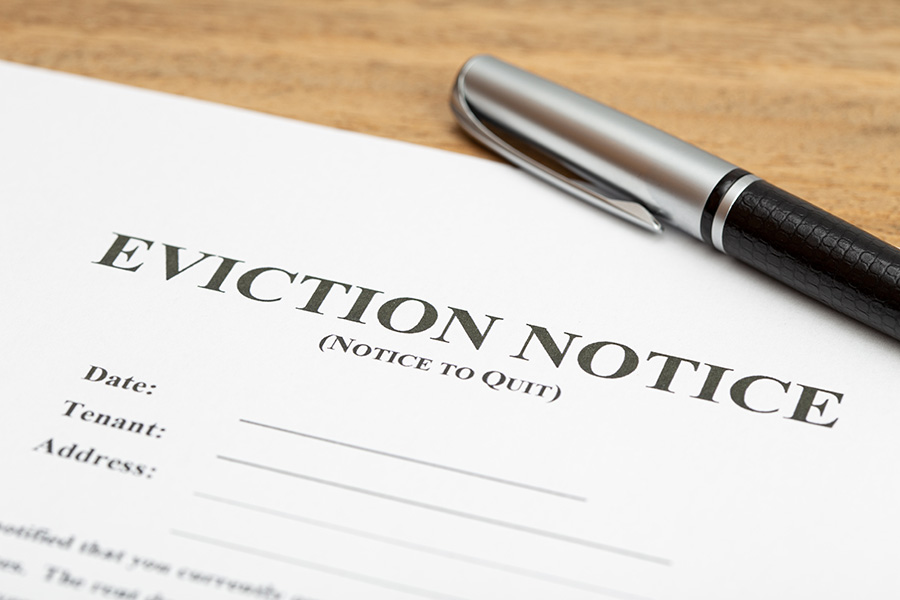
Guide to the Florida Foreclosure Process
Foreclosure is the legal process where a lender (mortgage holder) obtains a court order to sell a borrower’s (homeowner) property to pay off an outstanding debt. Foreclosure typically happens when a homeowner falls behind on their mortgage payments and the lender initiates foreclosure proceedings in an effort to recoup what is owed.
There are several different stages in the foreclosure process, including pre-foreclosure, foreclosure mediation, judicial foreclosure, and non-judicial foreclosure. Each stage has different rules and requirements depending on your state’s laws and regulations.
What are some common reasons behind foreclosure in Florida?
Some common reasons foreclosure may occur in Florida include:
- Defaulting on mortgage payments
- Failing to pay property taxes
- Not having adequate insurance coverage
- Violating the terms of the mortgage agreement
What is the foreclosure process in Florida?
The foreclosure process in Florida typically starts with a Notice of Default being filed with the county clerk’s office. This notice informs the homeowner that they are in default and foreclosure proceedings have begun. The homeowner will then have a certain amount of time, typically 30 days, to catch up on their payments. If the homeowner does not catch up on their payments within this timeframe, a foreclosure sale will be scheduled.
There are two types of foreclosure procedures in Florida: judicial and non-judicial.
Non-Judicial Foreclosure
Non-judicial foreclosure is faster and cheaper, but judicial foreclosure offers more protections for the borrower. In a non-judicial foreclosure, the lender does not have to go to court to foreclose on the property. The foreclosure process is started by the lender sending a Notice of Default to the borrower that states the amount owed and that foreclosure proceedings will begin if the debt is not paid. If the borrower does not make their payments as required, the lender may then foreclose on the property by selling it at auction through a foreclosure sale.
Judicial Foreclosure
In a judicial foreclosure, however, a court manages the foreclosure process from start to finish. This type of foreclosure typically takes longer than non-judicial foreclosure and involves more paperwork, but it also provides additional legal protections for borrowers. To initiate judicial foreclosure in Florida, the lender must file a lawsuit against the borrower in state court and prove to a judge that there is sufficient evidence that they are entitled to foreclose on the property. If successful, this lawsuit results in an order or judgment of foreclosure which the property is then sold in order to repay the debt.
Why Do People Foreclose on Their Homes?
There are several different reasons why people may choose to foreclose on their homes. Some of the most common include violating the terms of their mortgage agreement, experiencing a sudden drop in income that leaves them unable to make payments, or getting hit with unexpected expenses that leave them unable to keep up with their monthly.
One of the main reasons foreclosure happens is because borrowers fall behind on their mortgage payments. This can happen for a variety of reasons, including job loss or unexpected medical expenses.
In Florida, foreclosure typically begins when the borrower misses three consecutive monthly mortgage payments. At this point, the lender will send the borrower a foreclosure notice called a “notice of default” informing them that they are in danger of losing their home if they don’t take action to catch up on their payments.
What Process Do the Lender and Seller Have for a Foreclosure?
 The process of the lender during a foreclosure is to provide the borrower a foreclosure notice, send a demand for payment, and file a foreclosure lawsuit. The foreclosure process begins when the borrower misses three monthly mortgage payments. At this point, the lender will send the borrower a foreclosure notice called a “notice of default.” This notice informs the borrower that they are in danger of losing their home if they don’t take action to catch up on their payments. The lender will then send a demand for payment, which gives the borrower a specific amount of time to pay back what is owed. If the borrower does not make a payment or come to an agreement with the lender, the lender will file a foreclosure lawsuit.
The process of the lender during a foreclosure is to provide the borrower a foreclosure notice, send a demand for payment, and file a foreclosure lawsuit. The foreclosure process begins when the borrower misses three monthly mortgage payments. At this point, the lender will send the borrower a foreclosure notice called a “notice of default.” This notice informs the borrower that they are in danger of losing their home if they don’t take action to catch up on their payments. The lender will then send a demand for payment, which gives the borrower a specific amount of time to pay back what is owed. If the borrower does not make a payment or come to an agreement with the lender, the lender will file a foreclosure lawsuit.
The process of the seller during a foreclosure is to provide the borrower with a Notice of Default. This notice informs the borrower that they have failed to make their mortgage payments on time and that foreclosure proceedings may begin if they do not take action. The foreclosure process can be very long and complicated, so it is important for the borrower to understand all of their options before making any decisions.
The foreclosure process in Florida is different from other states because it is a judicial foreclosure state. This means that the lender must file a foreclosure lawsuit in court in order to foreclose on the property. The foreclosure process can take several months, or even years, to complete.
How Long Does the Foreclosure Process in Florida Take?
The length of the foreclosure process in Florida can vary widely, depending on a number of factors. Some of the most common factors include:
- Whether or not the homeowner has filed for bankruptcy protection
- How quickly they respond to foreclosure notices
- How quickly foreclosure actions are processed by state courts
In general, it typically takes anywhere between 6 months and two years to complete a foreclosure in Florida.
What is Preforeclosure?
Preforeclosure is the stage in foreclosure when a borrower is still in possession of their home but is at risk of foreclosure due to missed mortgage payments. During this time, the borrower may be able to take steps to delay foreclosure or avoid it altogether. Some possible options include seeking assistance from a housing counselor or negotiating with the lender on a repayment plan.
In Florida, foreclosure typically proceeds through several stages for the lender and seller to reclaim ownership of the property. The first step is known as preforeclosure, during which the borrower remains in possession of the home but must make efforts to catch up on missed payments and avoid foreclosure. If foreclosure is unavoidable, the next step is a foreclosure auction, where the property will be sold to the highest bidder.
Foreclosure Rates in Florida
States with the highest foreclosure rates in 2021 were Nevada (0.26 percent of housing units with a foreclosure filing); Illinois (0.23 percent); Florida (0.21 percent); Delaware (0.21 percent); and New Jersey (0.19 percent). Only four states – and not Florida – saw a 2021 increase in foreclosure starts: South Dakota (up 20%), Vermont (up 36%); North Dakota (up 71%), and Nevada (up 85%).
What is Filing for Bankruptcy?
Bankruptcy may also play a role in foreclosure proceedings. If a borrower has fallen behind on their payments and is facing foreclosure, they may decide to file for bankruptcy protection as a way to pause foreclosure proceedings and give themselves time to catch up on their payments.
However, filing for bankruptcy does not guarantee that foreclosure proceedings will be paused. The borrower will still need to work with their lender to find a way to catch up on their payments and avoid foreclosure.
If you are facing foreclosure in Florida, it’s important to understand the foreclosure process and your options. There are ways to avoid foreclosure, but you’ll need to act quickly and work with your lender to find a solution.
What Options Do the Homeowner Have?
The options a homeowner has to avoid foreclosure depend on a number of factors, including their current financial situation and whether they have fallen behind on their mortgage payments. Possible strategies include:
- Appealing to your lender to work out an alternate payment plan or loan modification that will give you more time to catch up on your mortgage.
- Applying for foreclosure prevention assistance through government programs or private organizations. These programs can provide support such as counseling, legal advice, and direct financial assistance.
- Filing for bankruptcy in order to buy yourself some time and gain access to the protections afforded by federal bankruptcy laws. However, keep in mind that bankruptcy does not guarantee that foreclosure proceedings will be halted or delayed.
If you are facing foreclosure in Florida, it’s important to arrange your finances in a way that will give you the best chance of success. This may include:
- Working with a foreclosure attorney to help you understand your rights and legal options under Florida law.
- Speaking with a housing counselor to get advice on managing your mortgage payments and avoiding foreclosure.
- Review all of your financial options in order to make an informed decision about what is best for you and your family.
Whatever route you choose, take action as soon as possible if you are facing foreclosure in Florida. The sooner you take steps to address the issue, the more likely it is that you’ll be able to keep your home.
What Does a Title/Escrow Company Do During a Home Foreclosure?
During a foreclosure in Florida, a title/escrow company is responsible for managing and processing the foreclosure sale. This typically involves preparing all necessary documentation and paperwork, including foreclosure deeds and notices of default. The title/escrow company also acts as an intermediary between you and your lender during the foreclosure process, helping to facilitate communication and resolve any disputes that may arise.
How Does Foreclosure Affect My Finances Afterward?
A foreclosure can have a significant impact on your finances, both in the short and long term. In the short term, you will likely incur foreclosure costs, such as attorney’s fees, court costs, and any unpaid balance on your mortgage loan. You will also likely see a negative impact on your credit score, which can make it difficult to obtain new lines of credit or loans in the future. In the long term, a foreclosure can stay on your credit report for up to seven years, making it difficult to rebuild your credit and improve your financial standing.
How Do I Avoid Foreclosure in Florida?
There are a number of ways you can avoid foreclosure in Florida. If you’re struggling to make your mortgage payments, you may be able to work with your mortgage provider in order to explore foreclosure alternatives, such as a loan modification, forbearance agreement, or repayment plan. You can also seek assistance from organizations like the U.S Department of Housing and Urban Development (HUD) or contact an experienced foreclosure lawyer for help with navigating your foreclosure process.
At its core, foreclosure is a legal process that involves taking possession of the property when someone fails to pay their mortgage. In Florida, foreclosure typically begins when you fall behind on payments or are in default under your mortgage contract. During this period, your lender may send you several notices and warnings about the possibility of foreclosure if you do not catch up on your payments.
What Is a Foreclosure Deed?
A foreclosure deed is a legal document that formally transfers ownership of a property from the defaulting homeowner to the lender. In Florida, foreclosure deeds must be notarized and recorded with the County Clerk’s office in order to become valid.
In addition to managing the foreclosure sale process, title/escrow companies also help homeowners explore their options for avoiding foreclosure. For example, many lenders are willing to work with homeowners who find themselves in financial distress and may be able to provide relief through loan modifications or other foreclosure prevention programs.
If you find yourself facing foreclosure in Florida, it is important to contact your lender as soon as possible and seek professional guidance from a qualified real estate attorney or foreclosure specialist. With the right support and guidance, there is hope that you can rise from these circumstances.
Seek Support at Galaxy Title & Escrow
Overall, the role of a title/escrow company in foreclosure is critical in ensuring that the foreclosure process proceeds smoothly and efficiently. Whether you are dealing with a foreclosure for the first time or have gone through this process before, it is important to work closely with your title/escrow company throughout the process to ensure that all deadlines are met, and everything runs according to plan. If you have questions about navigating the foreclosure process in Florida, reach out to Galaxy Title & Escrow.


